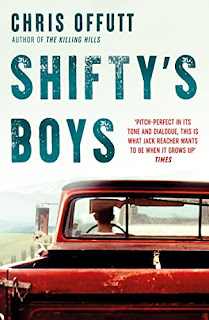Some say
Earthly Powers (1980) was Burgess's masterpiece, though I prefer the Enderby series and the
Malay Trilogy.
A Clockwork Orange is always the book he will be best known for, though I disliked it on my most recent reading. However,
Earthly Powers was written to land Burgess the Big Book Prize, which as I recall it didn't.
It is a massive undertaking, by far Burgess's longest book. Its size means that Burgess has to tune down experimentation and tackle the more usual novelistic tropes of character development and long story arcs. He does this, it has to be said, remarkably well. It was a typical Burgess clever stroke to base his protagonist, Kenneth M Toomey, on William Somerset Maugham, another very famous, extremely successful novelist and playwright whose success prevented his artistry being recognised in his lifetime. I told a good friend I had been reading and enjoying Maugham; he suggested I should read Earthly Powers.
Toomey isn't Maugham; he is homosexual like Maugham, ex-pat, successful in books and plays and films, but he isn't just Maugham under a different name. He is a Maugham-like character who finds himself subsumed into family and religion and, through them, dragged into significant events of the first eighty years of the twentieth century (in a way that Maugham, to the best of my recollection, wasn't).
His sister Hortense marries a young Italian composer whose brother is a priest. Toomey has by this time rejected the Catholic church of his upbringing, which condemns him as a homosexual. Domenico Campanati goes to Hollywood to write the score of dozens of motion pictures; Carlo Campanati becomes bishop of Milan and, ultimately, Pope Gregory XVII. None of this is spoiler: we know Carlo is pope because the novel starts with Toomey, after Gregory's death, being approached at his house in Malta to write an account of an apparent miracle he saw Carlo Campanati perform in a US hospital. The twist that comes from that event would absolutely be a spoiler - but I had no idea it was coming, and it really dropped my jaw. The twist, on its own, would be worth reading Earthly Powers for. But there is so much else. The characters are magnificent; the literary wordplay that Burgess just cannot resist; and the sheer scope of the story.
Earthly Powers didn't win the Booker, William Goldings' Rites of Passage did. I have now enjoyed them both. I suspect Golding is slightly superior in purely literary terms, which explains why a Maugham-based novel came second. As novels, though, they are equally magnificent.





































